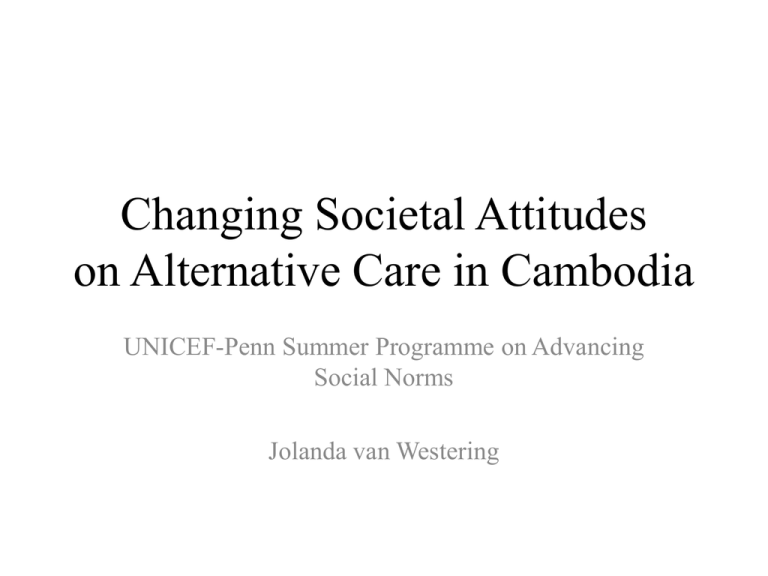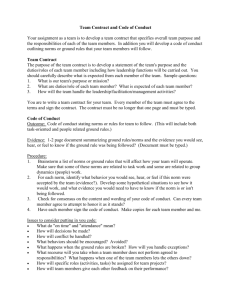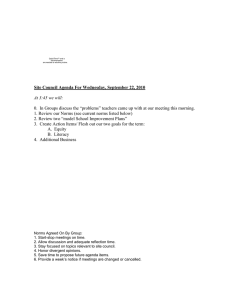van Westering.Jolanda - Powerpoint AC Social Norms paper Penn
advertisement

Changing Societal Attitudes on Alternative Care in Cambodia UNICEF-Penn Summer Programme on Advancing Social Norms Jolanda van Westering Introduction • Social norm of family and community based care for children • Normative and empirical expectations in place – activated in scripts on child care • Norm held up by rewards and sanctions • Rapid increase in residential care (65% increase of institutionalized children in three years) • 55% of children in residential care are not orphans What lies underneath • Institutionalization is harmful to children • Agenda of orphanages – proselytization and change of moral and social norms • Enabling environment set in recent social history of Cambodia Values Matter Values alone? • Placement based on value of wanting what is best for one’s child • However, children are not happy, parents are not happy, care does not meet the standards and educational opportunities are rarely better What is happening here? Role of Market Norms • Erosion of social norm under the influence of market norms and incentives • Market norms reconfigure existing social norm and shift expectations around alternative care for children • “when a social norm is trumped by a market norm, it will rarely return” (Daniel Ariely) Basic Values under Attack • External incentives/rewards change scripts for practices that were previously based on internal incentives (compassion, social approval) • New incentives redefine values on well-being of children and ensuring best possible care for children • They are shifting expectations of people changing norms that inform behaviour • Belief systems and new expectations are brought in line – coherence theory Divorces and Dilemmas • Divorce or disharmony between legal, moral and social norms • Influence of culture – practice in Cambodia mostly based on moral and social norms rather than legal norms • New incentives create new motivators and emotions • Social dilemma? What have we done so far? Evaluation of Current Strategies • Research to generate evidence for programming – Did not address expectations that underlie attitudes – Focused on selected target groups – not donors – Did not look at social networks that help shape attitudes and behaviors • Partnership building around AC • Building systems that support social norms change • Advocacy and communications strategy Change in Strategies • Re-categorizing values to change the scripts that are activated on alternative care • Place values in a child rights context • Messaging should reinforce a coherent belief system • Placing social norms change on alternative care in a social protection context that supports family preservation • Addressing underlying social exclusion and vulnerability - equity Change in Strategies cont’d • Engaging communities to build local ownership • Focus advocacy and communications on social networks – key influencers • Diffusion of knowledge towards changing expectations • Partnerships to reach donors and church groups that fund and maintain residential care Opportunities and Challenges • New CP 2011-2015 – IR on social change in child protection provides opportunity • National Social Protection Strategy under development • Decreasing funding • Rallying colleagues and counterparts around social norms change as key strategy – conceptual framework is needed. THANK YOU




